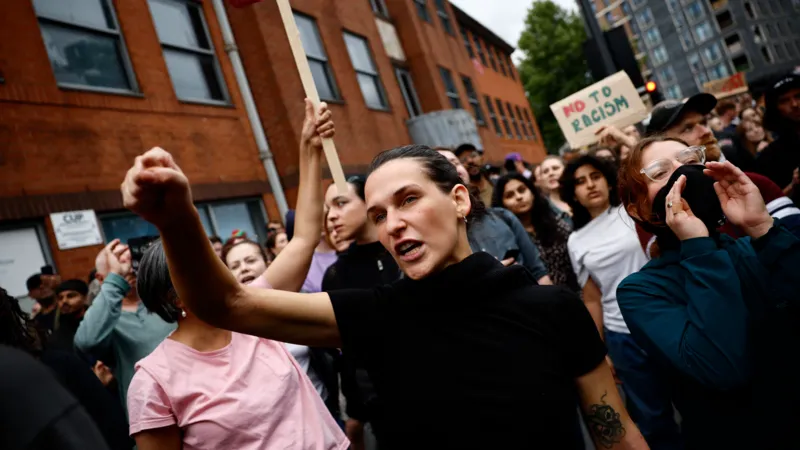After a week of anti-immigrant riots, thousands of people protesting against racism took to the streets across England. Many of these demonstrations were peaceful, with counter-protesters making up most of the crowds.
In places where anti-immigration protests had been expected, such as north London, Bristol, and Newcastle, large groups of counter-protesters chanted “refugees are welcome here.” Police had prepared for possible violence, deploying thousands of officers and expecting over 100 events, but only a few arrests were reported.
The riots had begun because of false information that the suspect in the stabbing of three girls in Southport was a Muslim asylum seeker. During the unrest, mosques and hotels housing asylum seekers were targeted, and some shops were looted or burned.
On Wednesday, businesses in England had boarded up windows and closed early in anticipation of more violence. Immigration lawyers were advised to work from home due to safety concerns. Despite this, the protests in several cities, including Liverpool, London, Bristol, Brighton, and Newcastle, were mostly peaceful.
In Southampton, around 300-400 people protested against racism, with only a small number of anti-immigration protesters present. Overall, more than 400 people have been arrested related to the riots, and some have already been sentenced.
Deputy Prime Minister Angela Rayner condemned the violence, stating that attacking hotels and throwing objects at the police were not acceptable forms of protest. Police will remain on standby for the near future, and King Charles is being kept informed of the situation but is not expected to visit the affected areas soon.
This report highlights the impact of the protests and the efforts to maintain peace amid ongoing tensions, reflecting on the broader issues of racism and immigration in the UK, as reported by the BBC.
https://www.bbc.com/news/articles/czxlgwl28gyo

